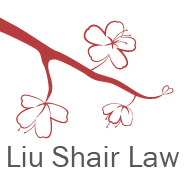Professional Perspectives: A Financial Advisor's Experience with Trusts
The third post in our Professional Perspectives series is a conversation with a financial advisor named Wendy Yuan. Wendy works at Charles Schwab in Fremont. She has been a great resource to her clients, encouraging them to get their Estate Planning done because she knows the practical importance of it from a financial institution’s viewpoint.
Any parenthetical sections are additional insights from our attorney, Shannon Liu Shair.
By: Ria N.
Speaking with Wendy Yuan, a financial advisor at Charles Schwab, we learn more about how trusts are put into effect and how she advises on the process.
What types of clients do you typically see as a financial advisor?
Most of my clients are over the age of 50 and approaching retirement. When it comes to their financial goals, they are mostly concerned about retiring comfortably.
(Though many clients start thinking about financial advising at this point, it is never too early to start thinking about your goals, whether they be short-term, mid-term, or long-term and Wendy does advise clients at all these stages.)
What is the process for creating a trust account/converting an existing account into a trust account? How long is this process?
Here at Schwab, we have our own application for this process. You must fill out the application and provide a copy of the certification of the trust to ensure that the trust actually exists. After submitting both of these to the processing center, the account should be converted or created within 3-5 business days. It is extremely simple and helps ensure that your accounts will be handled as said in your trust.
(Funding the trust is an extremely important step to ensure that your trust actually functions as intended. As Wendy describes, when you have a trust, the process of creating/converting trust accounts can be simple. Unfortunately, many people neglect to finish this step if they are not reminded to do so. Liu Shair Law follows up with all clients on their funding progress and also will contact client’s financial advisors when needed.)
Why do you think having a trust account is important?
For those with assets subject to probate (exceeding $150,000 in net worth), trusts allow you to avoid probate, which takes a percentage of your money. Having a trust and funding it by converting accounts into trust accounts also allows you to avoid family conflicts by providing clear instructions for how you want your assets to be distributed.
(In addition to avoiding probate, a trust outlines distribution wishes for whom, when, and for what purposes the money is distributed. For instance, when a client has young children and they want to ensure the child’s health, education, support, maintenance needs are paid for by the trust and that the child has a particular age of inheritance, a good trust would dictate all of this.)
What happens or changes when someone has a trust account?
Nothing changes, it is simply under a different title (e.g. Amy Johnson and Bill Johnson, as trustees of the Johnson Revocable Trust dated July 1, 2019). You can continue using the account as you usually would. You are not restricted from how to spend, save, or invest your own trust funds.
If a trustee needs to manage a trust account, how can they utilize a financial advisor?
Financial advisors provide services and guidance with investment or planning finances. We also help execute what is written in the trust and follow the trust creator’s wishes.
(When someone who sets up a revocable trust passes away, the trust becomes irrevocable and the terms cannot be changed. This means that the trustee has to follow the trust regarding asset distribution, any restrictions, and particular conditions. This allows the trust creator to feel confident that their wishes will be followed since trustees and financial advisors have the fiduciary duty to follow the trust and act in the client’s best wishes. Here is a helpful post about considerations in choosing a trustee.)
Have you had experience with clients who did not have trust accounts and had their assets go through probate?
Yes, the process was painful and lengthy. The clients had to spend a lot more money to hire a lawyer and pay other fees in court. In addition, their financial information was made public.
What do you do when a client has passed away and they had a trust account?
This process goes smoothly. Our estate distribution team takes care of everything once they receive a death notice. The team goes over accounts and directly reaches out to the client’s trustee.
(Speaking from personal experience in helping a family member administer the trust for his mother who passed away, it was very smooth to work on having the assets within Schwab taken care of with the team and the trustee working collaboratively with me. This is a big difference from someone having their assets go through probate court, as Wendy mentioned.)
Is there anything you want clients to know about trusts and financial advising?
Trusts are extremely important and help avoid conflict and probate. Financial advising is also very important, as it is similar to offering a map of your route and helping clients with where to go or how to navigate trusts.

